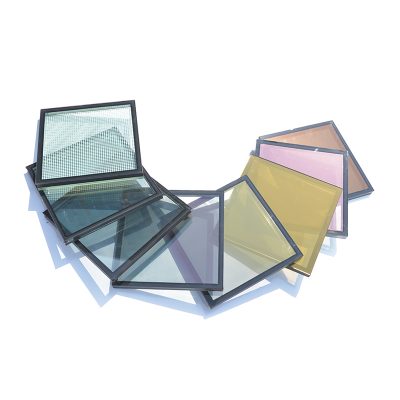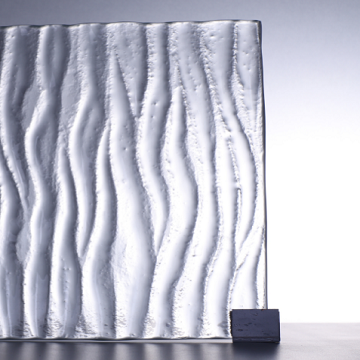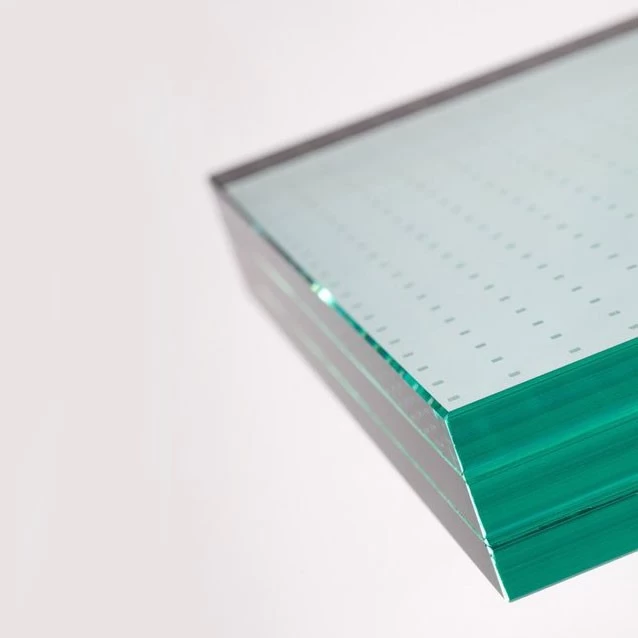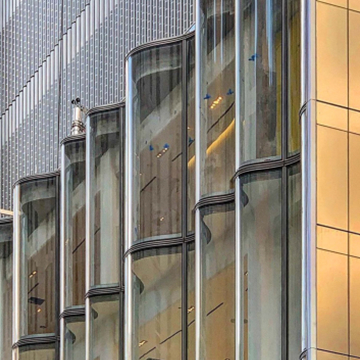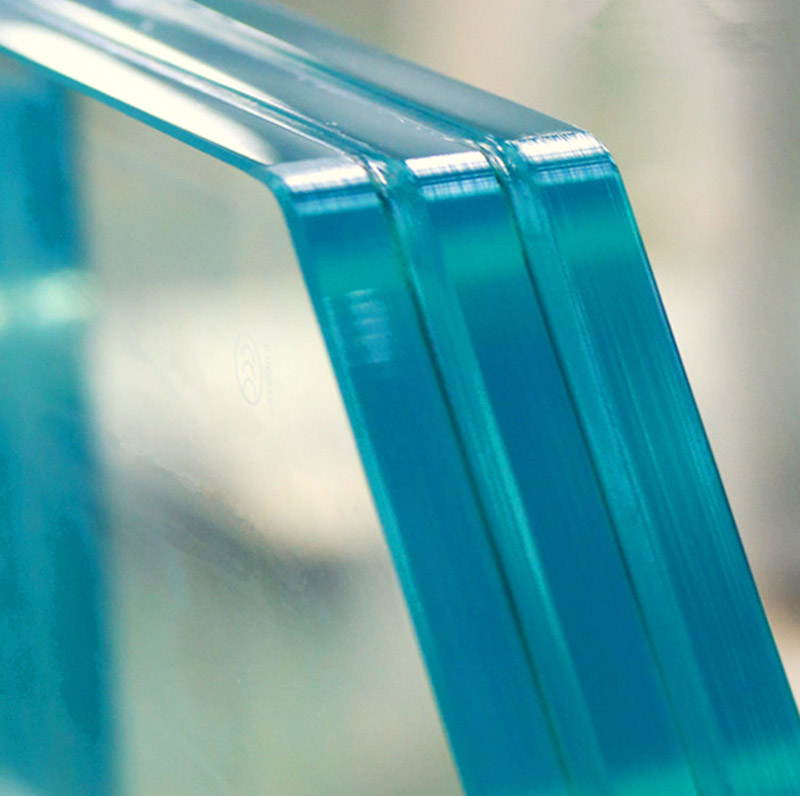Glass is a versatile material, manufactured by applying intense heat to sand or quartz. It is used in multiple industries, including construction. Glass provides a sleek, clean, and modern aesthetic when used in building facades, giving architects a wide range of design possibilities.
Glass allows innovative designs, and it can be treated to improve insulation and energy efficiency. Large glass envelopes have become very common, especially in urban areas. However, there are many different types of glass, and selecting the right type for a project can pose a technical challenge.
Advantages of Using Glass as a Building Material
Glass is used extensively in commercial buildings, mainly due to its special features and advantages. This section summarizes some benefits of glass as a building material.
Aesthetics
· Glass can absorb, refract or transmit light. It has the ability to make any building look more stunning and modern.
· Using glass in building facades and interiors enhances the ambience. Interiors appear larger and more open, with abundant natural lighting.
· Glass walls help increase the floor area, providing more space for tenants.
Physical Properties
· Glass is an excellent electrical insulator.
· Malleable glass can be blown, drawn and pressed to any shape. It is a versatile material with multiple applications, ranging from general glazing to furniture.
· Glass is resistant to abrasion.
· Glass is resistant to high temperatures. It can be used in fireplaces, cooking tops, and other high-temperature areas where low material expansion is needed.
Positive Impact on Occupants
· Natural lighting has a positive psychological effect, improving the mood of occupants.
· Glass helps improve work efficiency and performance in offices and schools.
Weather Resistance
· Glass can transmit 80% of daylight in any direction without weathering, clouding or yellowing.
· Glass is resistant to the weather and rust, without compromising its appearance and integrity.
· The smooth surface of glass makes it dustproof, allowing easier maintenance.
Sustainable and Energy Efficient
· Glass is recyclable, and can be reused many times without losing quality.
· Glass reduces the dead load of a building, since it is lightweight.
· There are many energy efficient glass products, and low-emissivity glass (low-e) is one of the most widely used. This type of glass achieves energy savings and lower utility bills, as well as points under the LEED rating system.
Cost-Effective
· Glass allows natural lighting, reducing the artificial lighting output required during daytime.
· Efficient glass provides energy savings, achieving synergy with efficient MEP systems. This combination can drastically lower your utility bills.
Glass is Easy to Work With
l The workability of glass comes in a variety of ways. It is possible to blow, draw, or press it. Glass with various qualities is available, including clear, tinted, reflective, diffused, and stained. It can be cut, bent, laminated, heat tempered, filmed, fused, carved, chemically treated, formed, and sandblasted. It is a go-to material for artists, decorators, architects, and manufacturers. The everyday uses of glass products are endless.
Technical Challenges in Glass Buildings
As a construction material, glass provides several benefits that make it popular in commercial projects, and even modern residential buildings. However, certain factors should be considered before starting construction.
Heat Transfer
Glass buildings allow natural lighting, but this causes solar heat gain and higher cooling expenses during summer. Thanks to innovation in glass manufacturing, this can be offset with energy efficient fenestration.
Glare
Another issue that must be considered is the potential glare that occurs with glass surfaces. There are special coatings and techniques to reduce glare in glass, and the window layout can also be optimized so the sun is not directly visible.
Types of Glass Commonly Found in Commercial Spaces
Flat Glass (often referred to as “float,” plate, or window glass):
This term is somewhat generic and refers to what could be called the “primary glass,” which is used to produce most of what is seen in structures today. Flat/float glass is manufactured in a variety of thicknesses. In addition, it is often tinted, tempered, or laminated to produce end products for commercial and residential buildings.
There is also what is known as “Low-iron” flat or float glass. This product uses a raw component mixture that differs from ordinary flat/float glass to produce a clearer (less green tint) glass. Originally developed primarily for the furniture industry rather than the construction industry, “low-iron” glass has made its way into the commercial construction arena and has become a popular glass choice with architects and owners.
Laminated Glass:
When shattered, this type of glass is likely to remain in place due to an inner-layer of polyvinylbutyl (PVB). The PVB interlayer also helps block UV rays from the sun, which can reduce fading of interior components such as carpeting, wood floors, and furnishings. This lamination process also produces safety-rated glass, bullet-resistant glass, hurricane-resistant glass, and sound-reducing glass products. Laminated glass is also the glass used in vehicle windshields. It can be cut and fabricated and thus is a very versatile product.
Tempered Glass:
Tempered glass is a type of safety glass, also known as toughened glass. The process involves cutting and fabricating a piece of float (flat) glass and then putting this piece of glass into a heating oven, where it is heated to approximately 1150 degrees Fahrenheit. After this heating process is performed, the glass is quickly cooled, which puts the glass into a molecular state where it is strengthened to approximately 4-5 times its original strength (resistance to impact).
The glass used in what is known as spandrel panels typically is tempered and colored with ceramic frit, paint opacifiers, or other materials. Spandrel panels are used in openings where visibility into an area of a building is not desired.
Insulated Glass or Thermo-Panes:
As the term implies, glass fabrications of this nature are intended to “insulate” for both heating and cooling purposes. A typical insulated glass unit will consist of two or more pieces of glass separated by air spaces, which is how the assembly achieves its insulating quality. Due to building code requirements and the practical benefit of using this type of glass product, most commercial and residential buildings incorporate this type of glass into their construction.
Final Thoughts on Glass Used in Commercial Buildings
Glass, as a building material, will continue to be utilized well into the future. It is an essential construction component that has made significant progress in energy conservation and safety over the past several years. In addition, it is a constantly evolving product that is an indispensable material for our everyday lives.
There are numerous other glass products (rolled glass, fire-resistant glass, chemically treated glass, art glass, x-ray glass, and so on) that are of interest. You are encouraged to research them further if so interested. Our goal here was to introduce you to some of the “Glass Basics,” hoping that your curiosity will lead you to want to further learn about the incredible world of glass.
Wallkingdon Glass is a leading glass supplier in China for architectural and interior glass and offers a variety of tempered and laminated glass products to satisfy a wide range of applications.
If you have any question for any type of glass , pls kindly contact us via enquiry@wallkingdonglass.com


